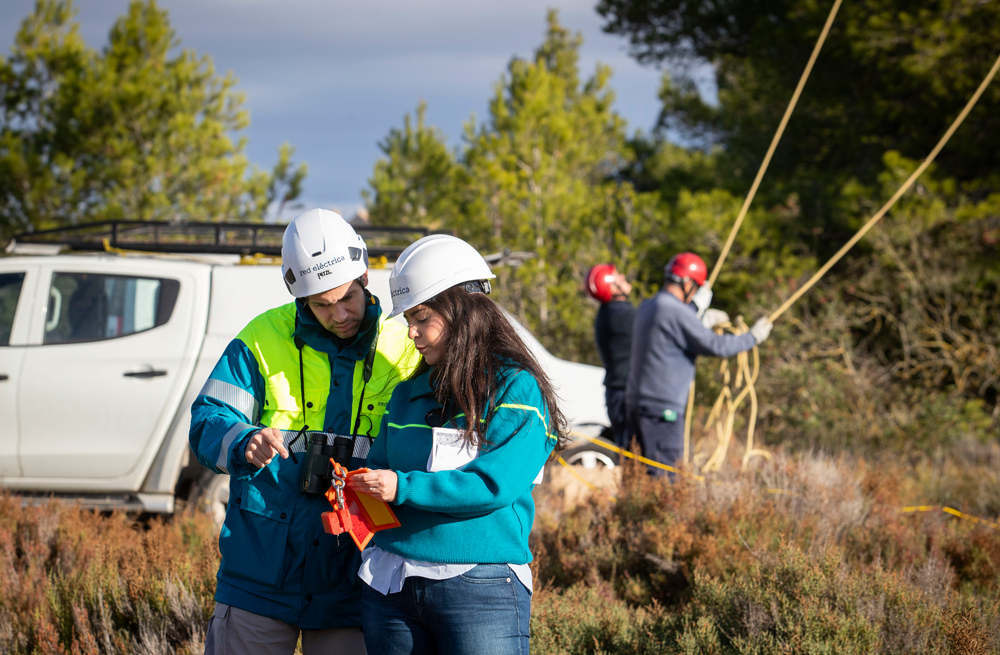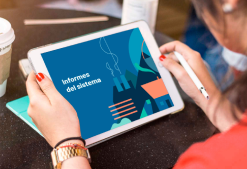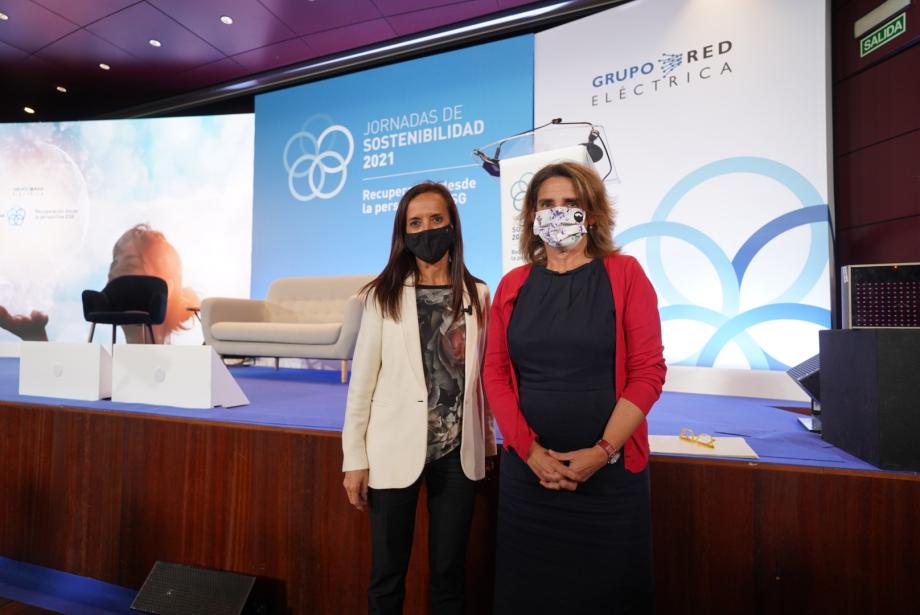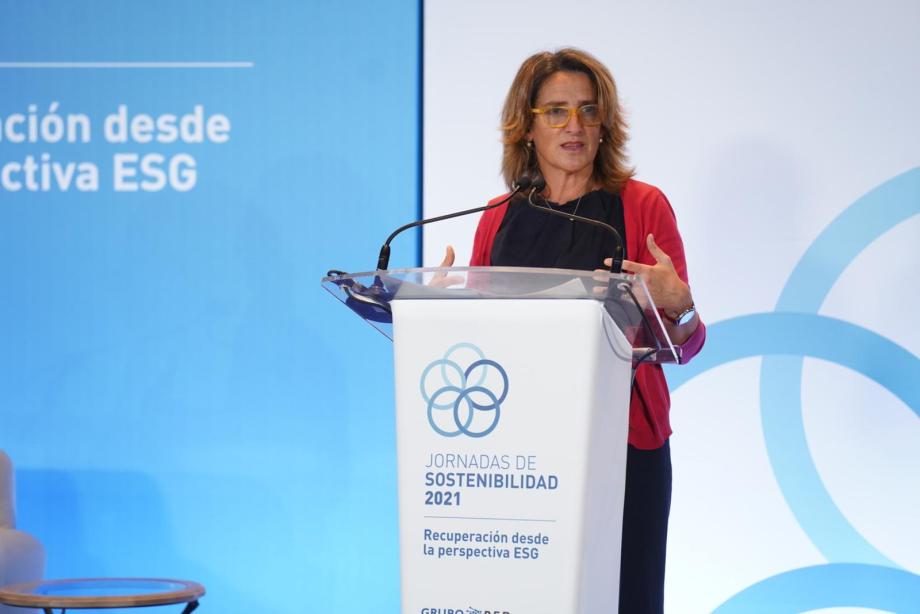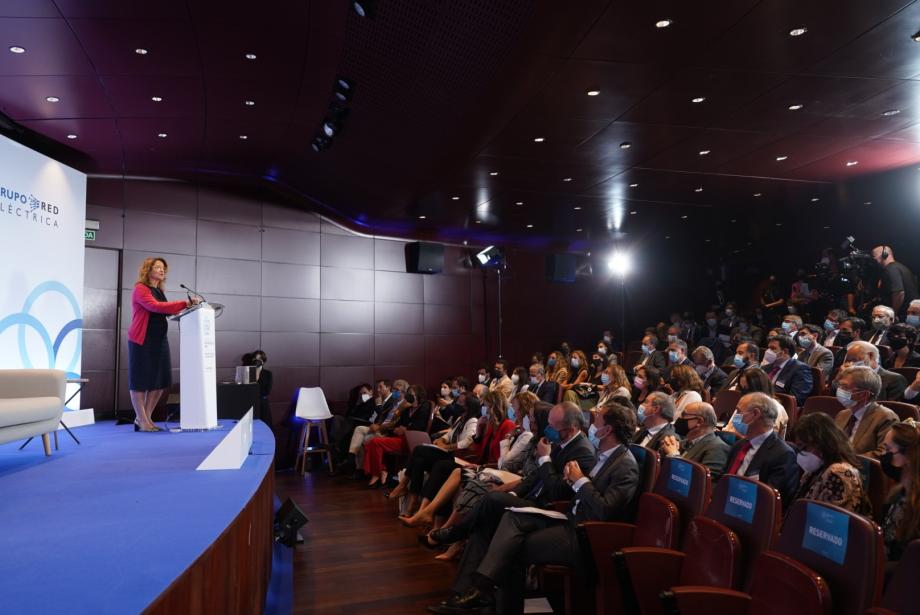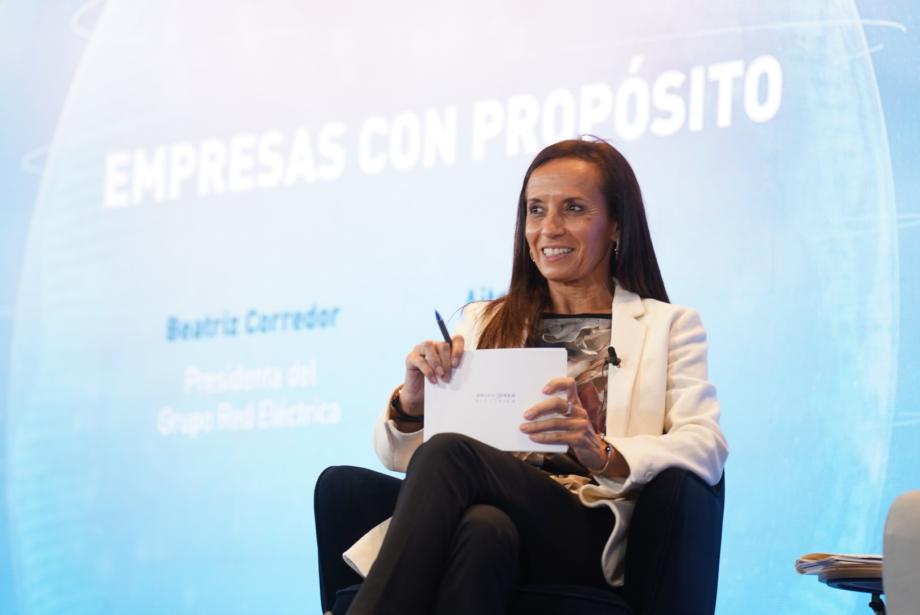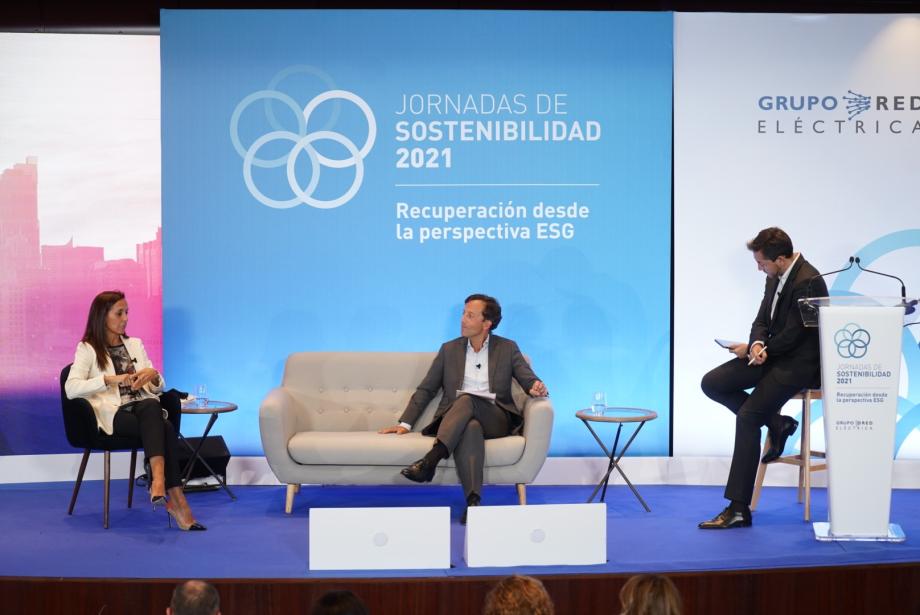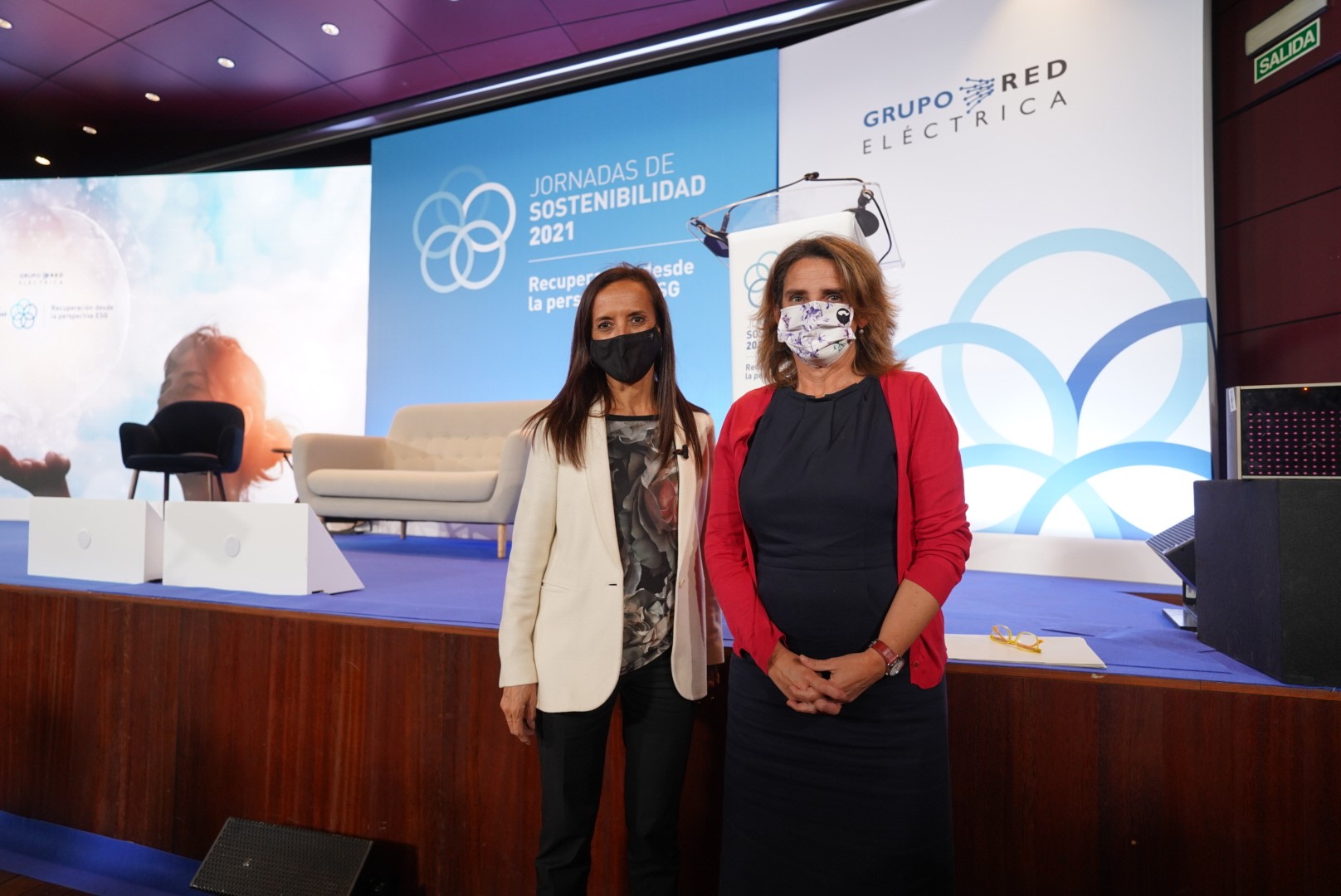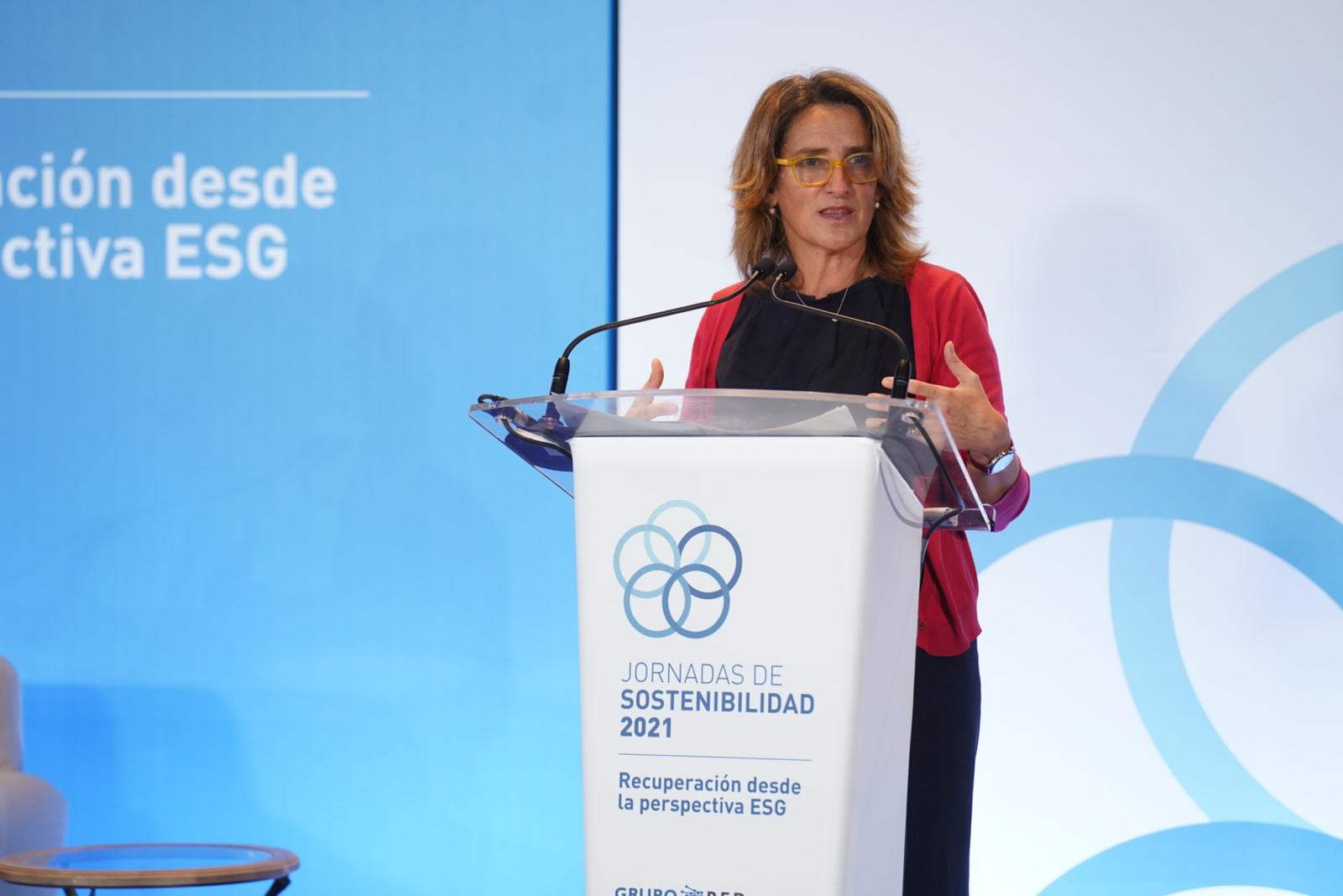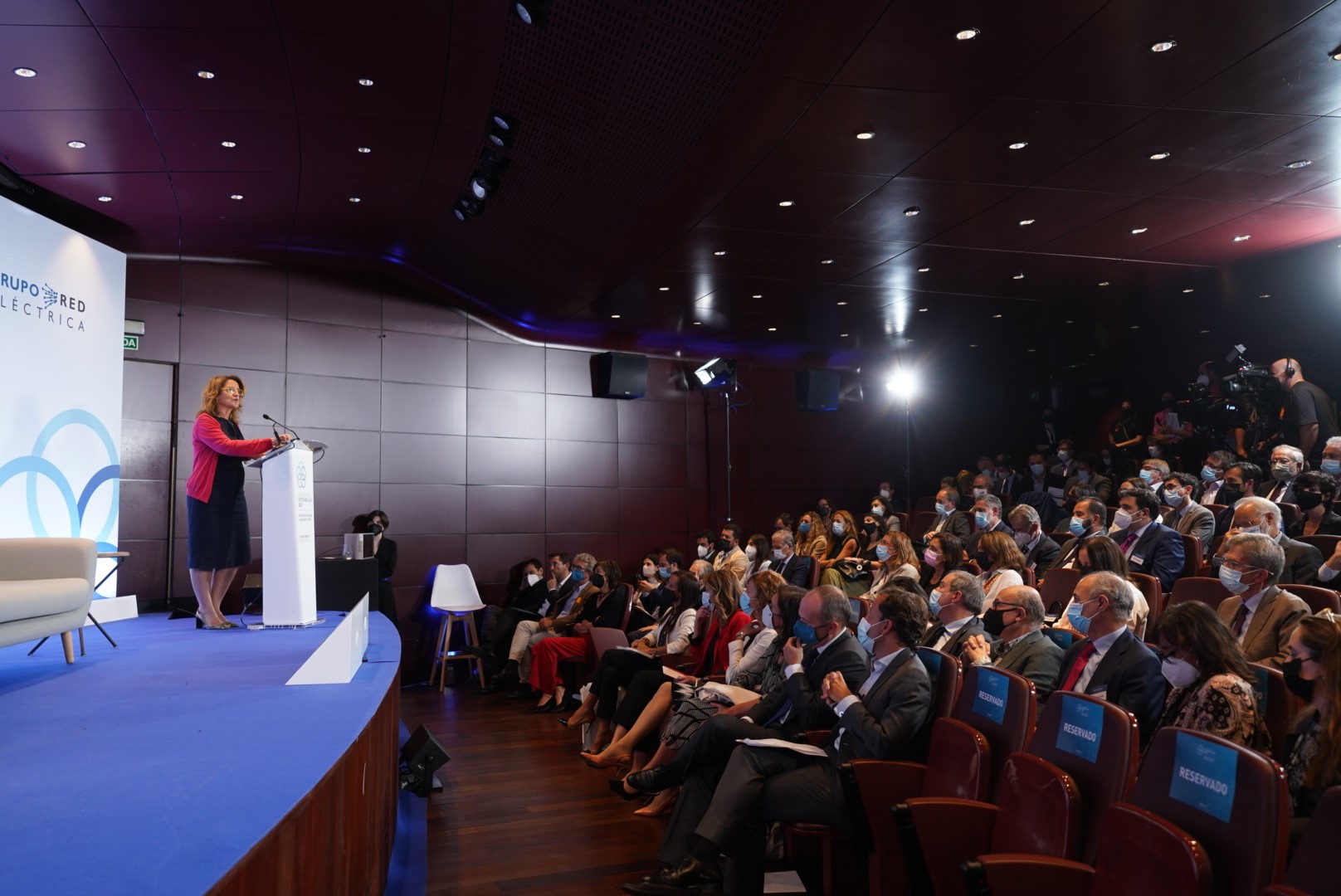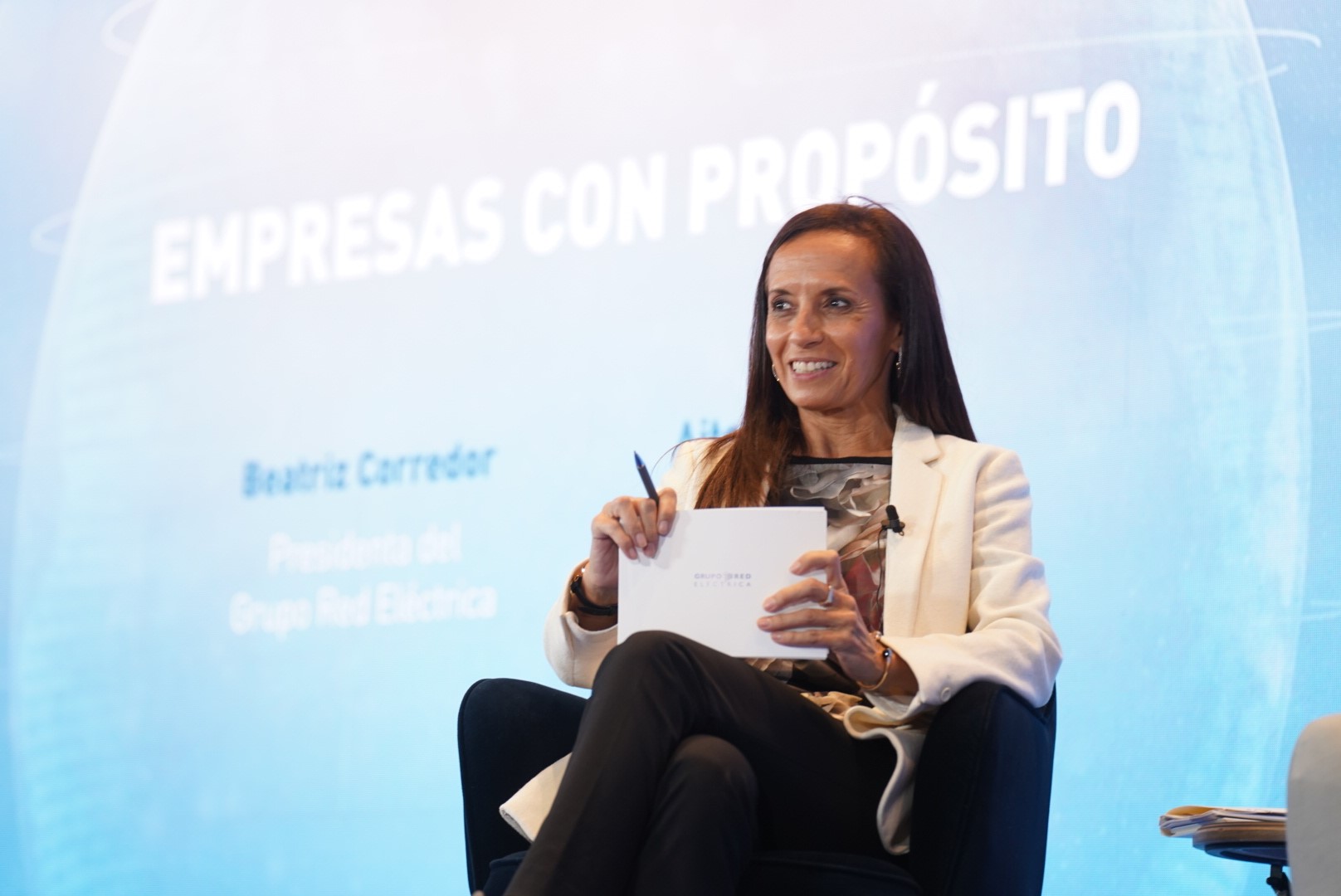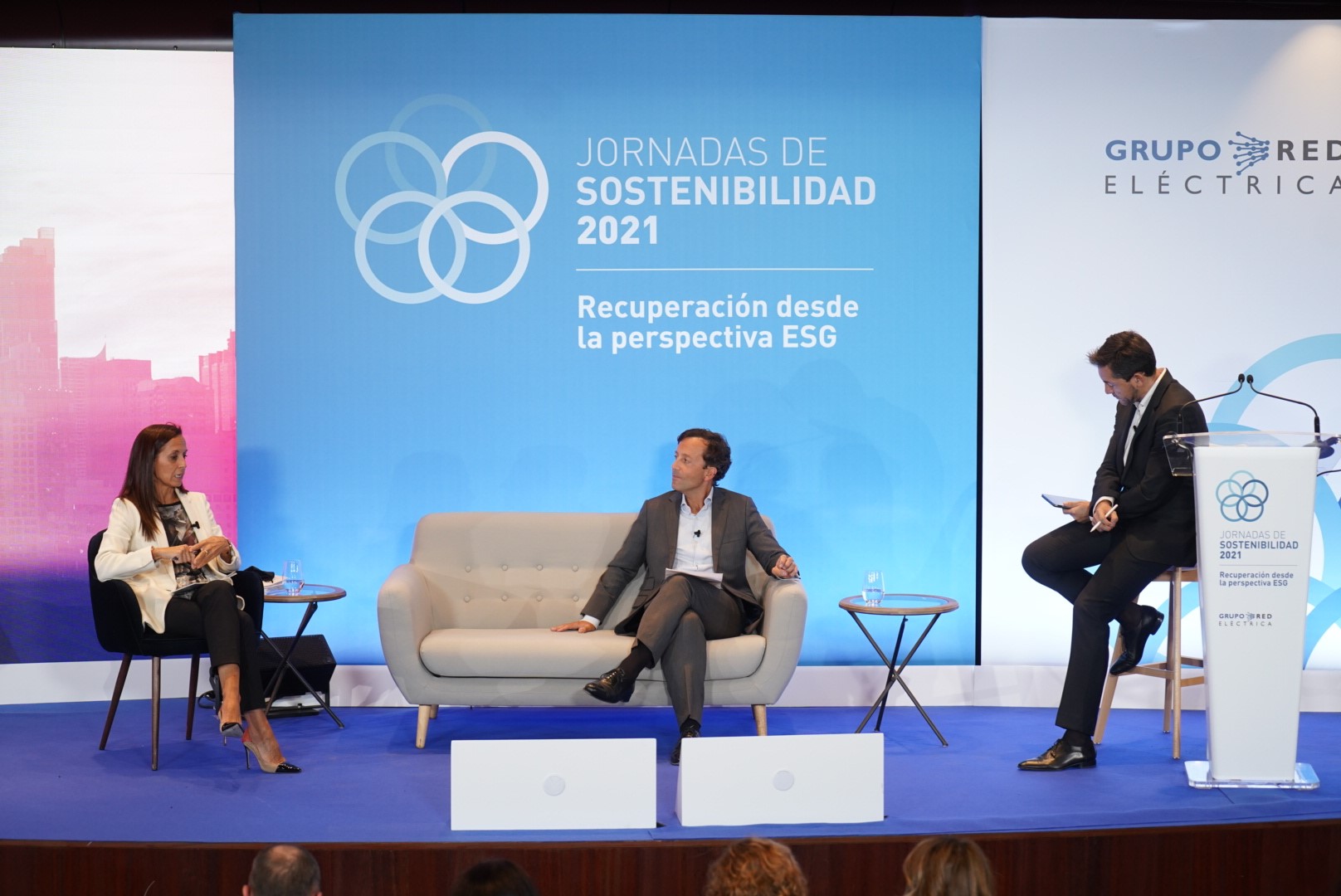Discover what Red Eléctrica is, what we do, and why we are the backbone of the electricity system in Spain and the ecological transition.
Teresa Ribera: “The crisis demands a fast green recovery that will benefit society through investment in people”
- The third vice-president opened the conferences, which between today and Friday will focus on the need to include environmental, social and governance aspects in the design of measures to support the recovery
- “Companies do not make a profit if there is no benefit to society,” stated the chairwoman of Red Eléctrica, Beatriz Corredor
{"preview_thumbnail":"/sites/default/files/styles/video_embed_wysiwyg_preview/public/video_thumbnails/4vslM9EGGWU.jpg?itok=nRKtSRso","video_url":"https://www.youtube.com/watch?v=4vslM9EGGWU&t","settings":{"responsive":1,"width":"854","height":"480","autoplay":1},"settings_summary":["Embedded Video (Responsive, autoplaying)."]}
“The current crisis demands a fast green recovery that will benefit society through investment in people. Social issues, along with environmental risks, are now central concerns that guide the decisions of entrepreneurs and public and private investment.” This is the opinion of Teresa Ribera, third vice-president of the central government and minister for Ecological Transition and the Demographic Challenge, at the opening session of the Sustainability Conferences 2021 held by the Red Eléctrica Group from today until Friday, at the Reina Sofía museum.
More than 30 experts are meeting in Madrid for in-depth discussions on the urgent need for business to consider their strategic decisions, management and investments under environmental, social and governance (ESG) criteria to promote the transition to a model of sustainable development that is fair and inclusive. Each session focuses on one of these criteria, with today’s session dedicated to the theme of corporate governance. This includes everything relating to management quality, accountability, transparency, government bodies and the nature of risks.
The chairwoman of the Red Eléctrica Group made the social aspect of ESG criteria the centre of attention, because, as she put it, “companies do not make a profit if there is no benefit to society.” Beatriz Corredor explained that “Red Eléctrica, as a company that deploys infrastructures across the country, has a commitment to leaving things better than we found them when doing this. That’s why our model begins by listening to what communities need before developing our projects”.
Finally, she said that “it is fundamental that sustainability forms part of companies’ purpose and culture as a central pillar of their business strategy, making it a key factor in decision-making in administration boards”.
In this sense, Roberto García Merino, the Group CEO, affirmed that in order to contribute to the green recovery, Red Eléctrica has taken on important challenges for the coming years, including bringing about the energy transition, with ever greater electrification of the economy, massive integration of renewable energies in the electricity system, ensuring that it is more secure and more efficient.
Sustainable 21st-century companies
The debates and round tables today revolved around responsible investment, corporate purpose, non-financial performance and the challenges of green recovery, focusing on which requirements 21st-century companies have to meet to be sustainable.
Montserrat Martínez, vice-president of the CNMV, said that “market transparency is vital in the fight against climate change, and this means that we must be able to compare companies’ non-financial information.”
Margarita Delgado, deputy governor of the Banco de España affirmed that “financial entities are including non-financial elements, not only environmental but also social ones in the management and culture of their organizations. Even so, there is still much to be done.”
For his part, Aitor Jáuregui, director of the BlackRock investment management company in Iberia, underlined that “companies have a great responsibility towards the communities where we operate” and that “the creation of long-term value is incompatible with practices that go against sustainability.”
José Carlos García de Quevedo, president of the Instituto de Crédito Oficial, said that “we need to continue to encourage the development of sustainable banking and non-banking financial instruments” and that the ICO is transforming its internal governance model to align its activity with the sustainability goals.
Today also saw the participation of Carmen Gómez de Barreda, independent board member of the Red Eléctrica Group for coordination; Birthe Bruhn-León, director of Iberia operations for the European Investment Bank; and Roberto Fernández, the Spanish member of the European Commission’s TEG.
The 2021 Sustainability Conference is supported by the Global Pact of the United Nations in Spain, Forética and Women Action Sustainability.
